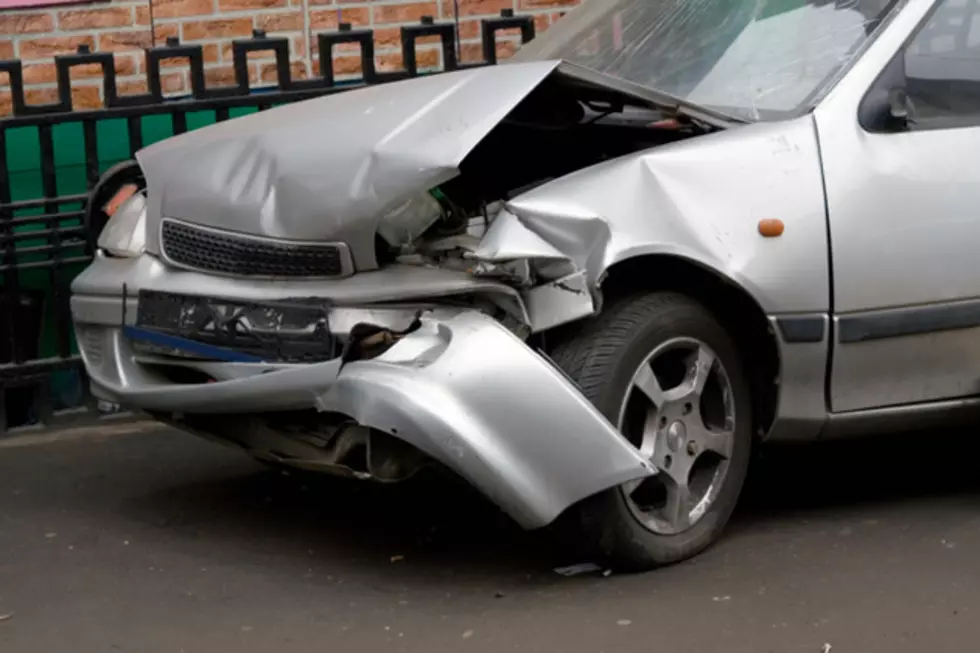![How Often Do You Change Car Insurance Carriers? [POLL]](http://townsquare.media/site/385/files/2014/01/autoinsurance-300x225.jpg?w=980&q=75)
How Often Do You Change Car Insurance Carriers? [POLL]
Despite some of the efforts made during the McGreevey administration to bring down the cost of car insurance here, a new study reveals what we’ve already known.
That is, we pay more, on average, for car insurance than the rest of the country.
Which begs the question – what with the cost of living being so high here, do you change carriers often – or do you stay with one carrier.
The reason I ask is because I get solicitations all the time from carriers I may have done business with at one time or another telling me “we miss you – please come back!”
And while it may seem prudent to do that, is it wise to do that every time your policy is up for renewal?
New Jersey topped the list of the most expensive place in the U.S. to get automobile insurance, according to a recently released report by the National Association of Insurance Commissioners.
The report said New Jersey drivers paid $1,302 in combined average premiums in 2011, the latest year available.
Also near the top were Louisiana ($1,282), the District of Columbia ($1,274) and New York ($1,234).
In New Jersey, the average insurance costs about $390 more than the national average.
However, there are some caveats that propelled New Jersey to the top.Since New Jersey is predominately urban, the costs are not directly comparable to states with large rural populations, the report notes. Also, New Jersey historically pays two to four times the national average in dividends to policyholders.
For example, New Jersey Manufacturers Insurance Co., which has an office in Hammonton, announced in December it was sending dividend checks to its 431,000 customers amounting to $82 per person for policies effective in 2012.
In a release accompany the announcement, the company noted that high medical inflation remains a challenge, but state regulatory reform to personal injury protection is beginning to "exert downward pressure on these costs."
Marshall McKnight, a spokesman for the New Jersey Department of Banking and Insurance, which regulates the industry, said state insurance consumers tend to buy more coverage and more liability insurance.
Also, insurance is costlier in high-population areas, and New Jersey is the most densely populated state in the country, he said.
In the coming years, state reform enacted in 2012 that implemented medical fee caps for personal injury protection will have a long-term impact on the market, he said.
Meanwhile, in December, the Department of Banking and Insurance issued some basic tips for shopping for auto insurance policies.
Some of these include:
•Understand what each policy covers. A basic policy, for instance, offers minimum protection and should only be considered by consumers with few or no assets.•Get quotes from agents or carriers. The state regulator recommends at least three quotes, but make sure each quote is for the exact same coverage.
•Ask about discounts. Carriers offer different policies that could reduce premiums. These could include discounts for those with short commutes to work, those with multiple cars, those insuring auto and homeowners insurance with the same carriers, those for safe drivers and those for students with good grades.
And guaranteed you’ll be getting notices in the mail every few weeks or so advertising how much you’ll save if you buy a policy from carrier “X”.
So I wonder:
Do you change auto insurers every time your present policy expires or do you stay with one carrier?
More From New Jersey 101.5 FM







![Car-Sharing Could Void Auto Insurance Policy [AUDIO]](http://townsquare.media/site/385/files/2014/05/95833091.jpg?w=980&q=75)
![NJ Ranks 9th in Nation for Highest Car Insurance Rates [AUDIO]](http://townsquare.media/site/385/files/2014/02/133981075.jpg?w=980&q=75)
